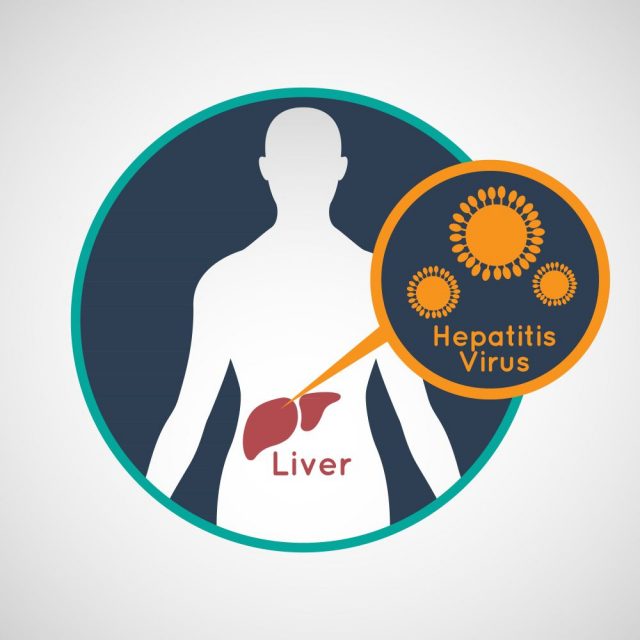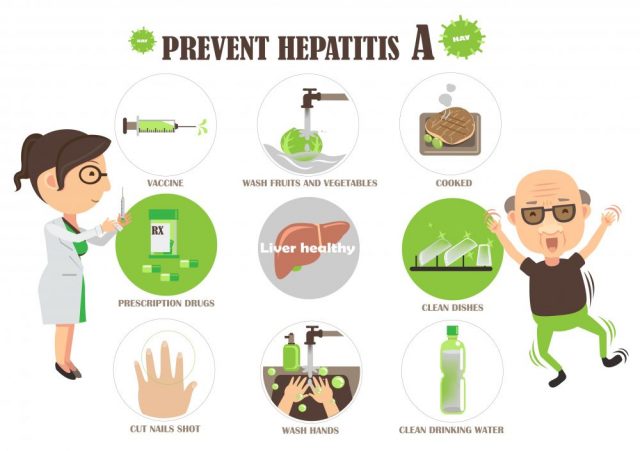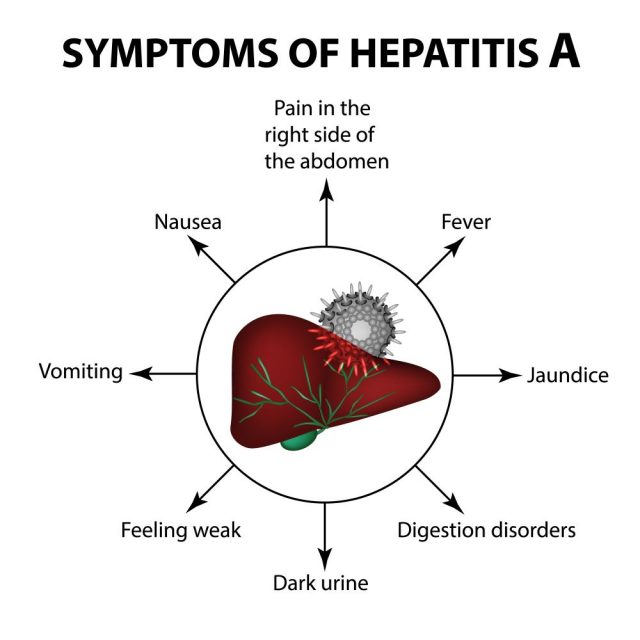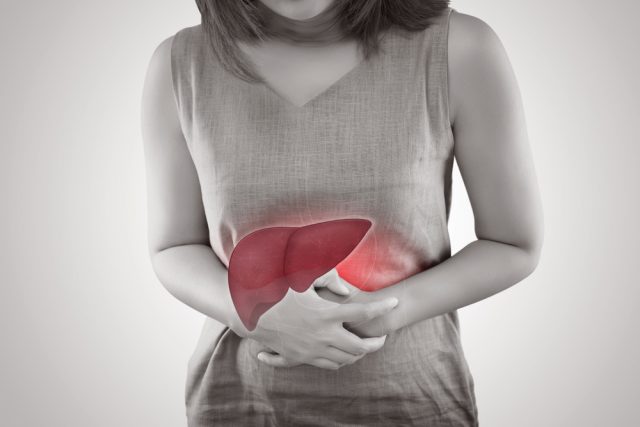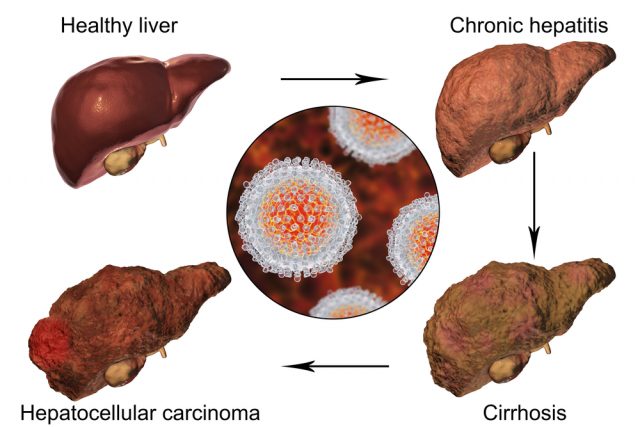Hepatitis A
What Is Hepatitis A?
There are several strings of the Hepatitis virus, each with different causes and treatments. Hepatitis A refers to a viral infection, often known for causing severe liver damage. In mild cases, the liver becomes inflamed and may have trouble functions. More severe cases see the liver failing completely. If this happens, many other areas of the body will cease to function. In the most extreme cases, this could even lead to death. The severity of any damages depends on the infected individual and how he/she is combating the virus. Commonly, the virus is more inconvenient than it is fatal.
Although Hepatitis A can largely go without treatment, the same can not be said for the other strains. The symptoms for each strain are similar, but the results are not. Both Hepatitis B & Hepatitis C require medical attention. With these strains, the liver damage is more likely to be fatal. However, contracting these strains of the virus will generally be the result of contact with blood and other bodily fluids. This includes sexual activities, though it’s more common with Hepatitis B.
If you’re at high-risk for contracting any strain of the virus, you need to know how to protect yourself.
Who Is At Risk?
Hepatitis A affects the liver and therefore, the entire immune system. This means that anyone with a compromised liver or low-immunity to viruses is at a higher risk of contracting the Hepatitis A virus. Babies and the elderly are in the high-risk category. The Hepatitis A virus can be deadly for anyone who has clotting issues, such as hemophilia.
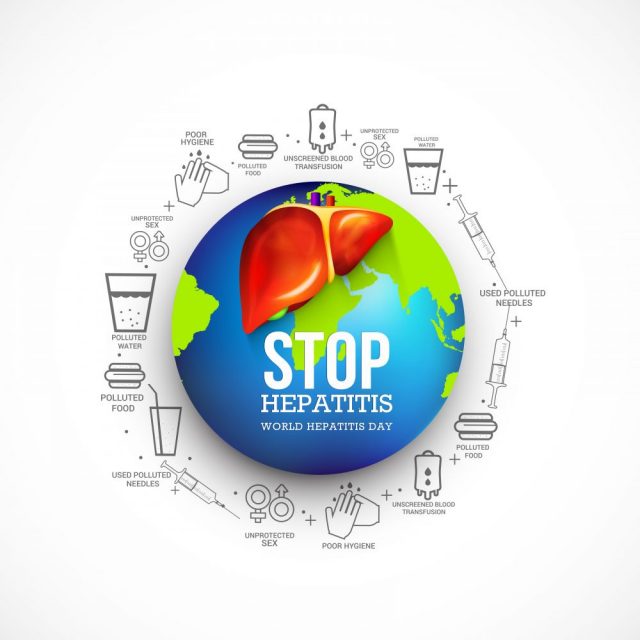 In addition, there are lifestyle factors that put you in higher risk:
In addition, there are lifestyle factors that put you in higher risk:
- Being in unsanitary areas or outbreak areas
- Poor personal hygiene
- Working around children or the elderly
- Travelling out of your own Country
- Not getting vaccinated
- Having unsafe sex
- Pregnancy
- Use of recreational drugs
- Alcoholism
According to the CDC, the amount of people with Hepatitis A reported each year ranges from 2500-3000. This number has dropped almost 50% from the early 2000’s. Of course, this refers only to the United States. Globally, the number is closer to 1.4 million.
Causes of Hepatitis A & How It Is Transmitted
Many people are confused about what causes this particular virus. Largely, it comes from contaminated food or water. In this case, the contamination refers to contact with fecal matter. This is more common in third-world countries, where sanitation is an issue.
The virus can also be caused by coming into contact with something that is infected. This includes both people and objects. So you really have to be careful that you’re not coming into contact with anything that might be carrying the Hepatitis A virus.
Here are a few methods of transmitting the virus:
- Eating food that hasn’t been properly handled
- Drinking any water that might be contaminated
- Eating raw shellfish from areas that sewage might be a problem
- Being close to someone who is infected
- Unprotected sex
One of the best ways you can protect yourself is to practice personal hygiene. Ensure that you’re washing your hands frequently, especially after coming into contact with any food, doorknob, or shaking someone’s hand. This will help to keep you clean of the Hepatitis A virus and lower your risk of contracting other viruses as well.
If there are symptoms present, see a doctor immediately to rule out other strains of the virus.
The Symptoms of Hepatitis A
The signs of Hepatitis A start to show after a couple of weeks. Keep in mind that not everyone experiences these symptoms or any symptoms at all. In fact, some people don’t show any symptoms at all. Those that do often recover quickly without any long-term problems. Although the presence of symptoms vary, here are the most common ones:
- Fatigue, a feeling of total exhaustion
- Sudden nausea, often accompanied by vomiting
- Discomfort or pain in the lower abdomen, particularly near the liver
- Loss of appetite, less eating
- Abnormal bowel movements, especially if they are colored like clay
- Fever, often mild
- Darker than usual urine
- Sudden paint in joints and extremities
- Jaundice, a yellowing of the skin and eyes
- Itching that seems intense
If you notice you have any of the symptoms, check in with your doctor.
Testing for the Presence of Hepatitis A
In order to determine whether or not you have the Hepatitis A virus, your doctor will need to take a blood sample. Generally, this is an easy process. The most commonly used vein is the one in your arm. This is the most relaxing way to have blood drawn.
If you’re uncomfortable with having blood taken, here are a few suggestions to keep you distracted:
- Bring someone along that you can converse with
- Meditate or use imagery to take your brain away from the situation
- Eat a light snack before heading into the office to avoid feeling dizzy
Results can be in quickly or take a few weeks. You’ll want to ask at the time of your blood test when you should be expecting the results.
Different Treatments for Hepatitis A
There is an available vaccination that can be used as a preventative measure or after coming in contact with the Hepatitis A virus. The vaccination comes in two parts, each 6 months apart. It is most effective if given within the first two weeks of contact with the Hepatitis A virus. However, it is beneficial as a preventative measure as well.
It is recommended that anyone on the following list gets a vaccination:
- All children
- Individuals who work within a lab, particularly medical
- Homosexual men
- People who travel frequently
- Anyone who uses illegal drugs as a recreation
- Anyone with a clotting disorder, whether they are receiving treatment or not
- Anyone with an existing liver condition
- Those who suffer from alcoholism
Not everyone needs to be vaccinated, but everyone should know the availability of the vaccinations. While the Hepatitis A virus is common and likely not to cause long-term damage, it’s certainly a risk no one should be willing to take. Approximately 75-85 people each year die from Hepatitis A.
If you are pregnant, you may not be eligible for the vaccination.
Living With Hepatitis A
Since the inflammation is often mild, many people choose to live with the virus. There are also those who don’t believe in vaccinations that have had to find ways of managing the virus. Within 6 months, the liver usually heals any damage so it doesn’t last a long time. However, the virus can and will likely come back and continue to be a persistent problem. Because of this, treatment is the ideal option for Hepatitis A.
You can also do any of the following:
- When you’re feeling fatigued or drained, make sure you rest. This allows your body to work harder towards fighting the infection.
- Use anti-nausea tablets to help fight the feeling of needing to throw up. This will allow you to be able to eat regular meals.
- If you’re having trouble eating properly, eat smaller snacks throughout the day. This will keep your body from feeling starving, while being easier to digest.
- Avoid alcohol.
- Carefully examine any over-the-counter medications for warnings regarding liver damage. Avoid anything that says “may cause liver damage”.
- If you’re currently taking any type of medication, immediately consult your doctor.
- Do not prepare food, especially for others. You are contagious and don’t want to contaminate those around you.
- Do not underestimate the power of personal hygiene and make sure you’re washing your hands excessively.
- Avoid any sexual contact while you’re infected. Always use protection.
How Hepatitis A Influences Pregnancy & Alcoholism
Interestingly enough, there aren’t any long-term affects to pregnancy with the Hepatitis A virus. In fact, there is even limited resources regarding the presence of the virus in pregnant woman. The chances of transmission to the baby are only 4/100, according to the few studies conducted.
Those who suffer from alcoholism are at a higher-risk for contracting the Hepatitis A virus. They are also at a higher-risk for long-term damage. Alcohol is hard on the liver,. Any illness or virus that attacks the liver can quickly fatal as a result. In order to avoid long-term damage, cutting back on alcohol consumption (or quitting entirely) is the only option.

